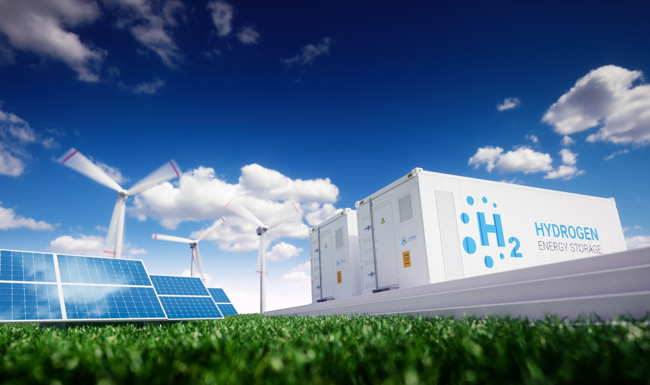
E-Invoicing and Its Geopolitical Stakes
France’s electronic invoicing reform relies on a Y-architecture, where Partner Dematerialization Providers (PDPs) play a central role in issuing and…
Generix Announces the Appointment of Olivier Vaillancourt as General Manager for North America View the press release

Each of these actions prompts us to think about environment and take decisions about the use we make of recyclable, compostable and biodegradable waste. As a society, we are more and more conscious of the role each of us plays when it comes to the environmental responsibility and take it into consideration when making purchase decisions. And how about a distribution center? Governments try to remedy the alarming quantity of greenhouse gas emissions produced by the supply chain industry. Here are 3 tactics you can consider implementing in your warehouse operations, all while taking into account profitability and efficiency of your operations.
From a cost-effective standpoint, hydrogen fuel cells may be a superior option to the traditional lead-acid batteries. These batteries stand out thanks to the longer useful lives than their traditional counterparts. The initial investment and the maintenance costs are comparable. The only potential drawback is the cost of the actual forklift model using the new technology. Depending on the model chosen, operators may or may not make a business case for the environmentally friendly alternative. Hydrogen fuel cells also allow for greater logistical efficiency. The refueling period is relatively fast and results in significant time savings when compared to working with lead-acid batteries. What more, these forklifts travel much faster than the conventional battery-powered ones. Finally, hydrogen fuel cells emit no GES while operating. They bring you closer to reaching the sustainable development objectives set by your organization.
The initial investment for LED technology will be higher than for fluorescent lights but with lower annual operating costs. In addition, the life expectancy of LED lights is much longer, and can offer as many as +200,000 hours with variations due to industry differences. Your business may reach the break-even point after only three years following the investment. In terms of logistical efficiency, the only downside will be the brightness of the LEDs. At some point, the luminosity at your warehouse may fall below acceptable levels despite what LED suppliers may claim. Finally, the energy efficiency of LED technology is by far more attractive than that of fluorescent lights (80% compared to 10%). In addition, LED lights do not contain any mercury.
How about wind power? Will installing wind turbines be profitable enough to power your distribution center? To find out, you’ll need to evaluate your electricity cost as well as the wind patterns in your area. Add to that the cost of purchasing, installing and maintaining the wind turbines. Unlike fossil fuels, wind is not a stable source of energy, and logistical efficiency may be affected. This is especially the case when the wind turbines cannot fully satisfy the warehouse’s need for electricity. On the other hand, CO2 emissions from the warehouse’s power supply would be completely eliminated. Even though the distribution center may not be fully self-sufficient with wind power as the only source of energy, wind turbines are still a good option. Building a hybrid warehouse which relies on both wind power and network electricity is a solid contribution to sustainability.
All three options discussed in this article are sound from an environmental point of view. They all further environmental conservation. Each option has to be carefully evaluated with your suppliers. The costs of acquisition, installation and maintenance must be accounted for. This exercise will allow business owners to manage the ROI expectations and make the right decisions both for the business and the planet. Going ahead with any of these initiatives will serve well the generations to come.
Generix Group North America provides a series of solutions within our Supply Chain Hub product suite to create efficiencies across an entire supply chain. Our solutions are in use around the world and our experience is second-to-none. We invite you to reach out to us here to learn more.

France’s electronic invoicing reform relies on a Y-architecture, where Partner Dematerialization Providers (PDPs) play a central role in issuing and…

The B2B mandate in Germany, set to take effect on January 1, 2025, marks a crucial step in the European…

Following the October 15 announcement regarding the abandonment of the PPF development, the DGFIP and its partner AIFE are ramping…

Work with our team to build your ideal supply chain software stack and tailor it to your unique business needs.